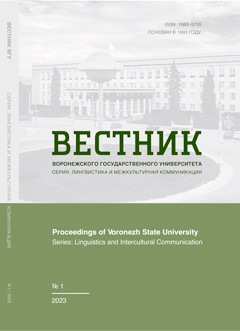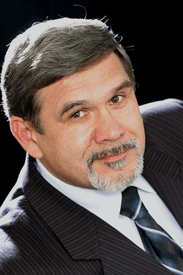Исследовательский дискурс: жанровые универсалии и дисциплинарная специфика научных статей
Аннотация
Работа посвящена изучению академического исследовательского дискурса. Целью данного исследования является определение исследовательского дискурса как типа академического, а также выявление и анализ общих жанровых черт и дисциплинарной вариативности англоязычной исследовательской статьи. Рассматриваются англоязычные исследовательские статьи медицинских и лингвистических журналов. Авторы приходят к заключению, что исследовательская статья является ядром исследовательского дискурса; макроструктура исследовательской статьи является универсальной характеристикой англоязычного исследовательского дискурса; выявлены ряд специфических характеристик медицинских и лингвистических статей, отражающих дисциплинарную вариативность исследовательского дискурса.
Скачивания
Литература
2. Hamp-Lyons L. English for academic purposes. In The Cambridge TESOL Guide. Cambridge: Cambridge University Press, 2001. Pp. 126–130.
3. Flowerdew L. Language for specific purposes: English for academic purposes. In The Encyclopedia of Applied Linguistics. Oxford: Wiley-Blackwell. Available at: DOI
4. Bhatia V. K. A generic view of academic discourse. In J. Flowerdew (Ed.) Academic Discourse, Longman, London, 2002. Pp. 21–39.
5. Swales J Research Genres. Explorations and Applications. New York: Cambridge University Press, 2004. 304. 260 p.
6. Hyland K. Academic Discourse: English in a Global Context. London and New York: Continuum, 2009. 256 p.
7. Paltridge B. Genre analysis and the identification of textual boundaries. In Applied Linguistics. 1994. No. 15, 3. Pp. 288–299.
8. Tribble C. Corpora and corpus analysis: New windows on academic writing. In J. Flowerdew (ed.), Academic Discourse. London: Longman, 2002. Pp. 131–149.
9. Yoon H. More than a linguistic reference: The influence of corpus technology on L2 academic writing. In Language Learning and Technology. 2008. No. 12. Pp. 31–48.
10. Martin-Martin P. A genre analysis of English and Spanish research paper abstracts in experimental social sciences. In English for Specific Purposes. 2003. No. 22. Pp. 25–43.
11. Salager-Meyer F. Scientific publishing in peripheral (a.k.a. developing) countries: Challenges for the future. In Journal of English for Academic Purposes. 2008. No. 7(2). Pp. 121–132.
12. Hirano E. Research article introductions in English for specific purposes: A comparison between Brazilian Portuguese and English. In English for Specific Purposes. 2009. No. 28. Pp. 240–250.
13. Kubryakova E. S. Jazyk i znanie. Na puti polucheniya znanij o yazyke: chasti rechi s kognitivnoj tochki zreniya. Rol’ yazyka v poznanii mira [Language and knowledge. Towards gaining knowledge of the language: parts of speech from a cognitive point of view. The role of language in the knowledge of the world] Moscow: Jazyki slavyanskoj kul’tury, 2004. 556 p.
14. Tsurikova L. V. Problema estestvennosti diskursamezhkul’turnoj kommunikatsii [The problem of the naturalness of discourse in intercultural communication. Voronezh: Voronezh. gos. un-t, 2002. 257 p.
15. Stebletsova А. O. Metaprofessional’nyj delovoj diskurs: tipologiya i natsional’naya spetsifika [Metaprofessional business discourse: typology and national specificity]. Voronezh: Istoki, 2017. 310 p.
16. Tsurikova L. V., Kuz’menko P. B. Sopostavlenie soderzhatel’nogo napolneniya angloyazychnykh i russkoyazychnykh statej po lingvistike [Comparison of the content of English-language and Russian-language articles on linguistics]. Kul’tura i tekst. АltGPU, 2020. Pp. 144–158.
17. Dement’ev V. V. Teoriya rechevykh zhanrov. [Theory of Speech Genres]. Moscow: Znak, 2010. 600 p.
18. Swales J. Genre Analysis: English in Academic and Research Settings. Cambridge: CUP, 1990. 288 p.
19. Bhatia V. K. Analysing Genre: Language Use in Professional Settings. London: Longman, 1993. 246 p.
20. Hyland K. Academic discourse. In Continuum Companion to Discourse Analysis. London: Continuum. 2011. Pp. 171–184.
21. Flowerdew J. Academic discourse. London, England: Longman, 2002. 341 p.
22. Berkenkotter C. and Huckin T. Genre Knowledge in Disciplinary Communication: Cognition/Culture/Power. Hillsdale, NJ: Lawrence Erlbaum, 1995.
23. Hyland K. Hedging in Scientific Research Articles. Amsterdam: John Benjamins, 1998.
24. Hyland K. ‘As can be seen: Lexical bundles and disciplinary variation’. In English for Specific Purposes. 2008. No. 27(1). Pp. 4–21.
25. Basturkmen H. Commenting on results in published research articles and masters dissertations in language teaching. In Journal of English for Academic Purposes. 2009. No. 8. Рp. 241–251.
26. Charles M. The construction of stance in reporting clauses: a cross-disciplinary study of theses. In Applied Linguistics. 2006. No. 27. Рp. 492–518.
27. Bloor M. Variations in the method sections of research articles across disciplines: the case of fast and slow text. In Issues in EAP writing, research and instruction. Reading: CALS, The University of Reading, 1998. Pp. 84–106.
28. Duszak A. Analyzing digressiveness in Polish academic texts. In Culture and Styles of Academic Discourse. Berlin: Mouton de Gruyter, 1997. Pp. 323–41.
29. Connor U., 1996. Contrastive rhetoric. Cambridge, England: Cambridge University Press. 218 p.
30. Connor U. New directions in contrastive rhetoric. In TESOL Quarterly. 2002. No. 36. Рp. 493–510.
31. Hyland K. Disciplinary Discourses. Ann Arbor: University of Michigan Press, 2004.
32. Karasik V. I. O kategoriyakh diskursa. [On the categories of discourse]. In Yazykovaya lichnost’: sotsiolingvisticheskie i ehmotivnye aspekty: Sb. nauch. tr. Volgograd: Peremena, 1998. Pp. 185–197.
33. Stebletsova А. O., Naumenko Y. N. Zagolovki anglijskikh i russkikh nauchnykh statej: diskursivno-kognitivnye osobennosti. [Headings of English and Russian research articles: discursive-cognitive features]. In Vestnik Moskovskogo gosudarstvennogo lingvisticheskogo universiteta. Gumanitarnye nauki. 2019. No. 4 (820). Pp. 161–179.













